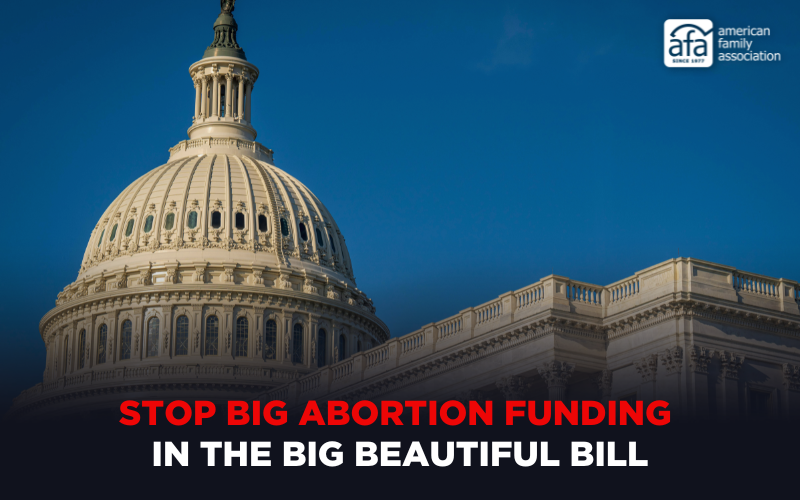WHO Initiatives Could Usher in Global Governance
Sign up for a six month free
trial of The Stand Magazine!
Prior to COVID-19, the World Health Organization (WHO) was unfamiliar to the general population. During the pandemic, however, people became more acquainted with the organization, and many were divided over what role, if any, the WHO should have over health care decisions for sovereign nations.
The WHO has traditionally served as a health advisory organization, but recently proposed amendments to the WHO’s International Health Regulations (IHR) – a legal framework defining how participating countries should handle public health events – have raised concerns that member states would be effectively ceding their national sovereignty should the amendments pass.
Though the proposals are available for the public to see, they have received little attention in mainstream public discourse. Therefore, they have slowly been progressing forward with little opposition; only a few are speaking up and warning others about the potential outcomes of what appears to be a power grab by the WHO.
Michele Bachmann – former congresswoman, presidential candidate, and current dean of Robertson School of Government at Regent University – is one of the few who is warning of the dire consequences should the proposed amendments pass at the 77th World Health Assembly (WHA), to be held May 27-June 1.
Bachmann spoke with The Stand, sharing her concerns about the unprecedented move and her suggestions for stopping it.
The Stand: What is the WHO?
Michele Bachmann: The WHO is the healthcare face of the United Nations (U.N.). It was created to be a way for participating nations to work cooperatively on disease prevention and disease control. There was nothing nefarious about it when the organization was created. It was a voluntary organization. If any nation didn’t want to go along with WHO recommendations, it didn’t have to.
TS: So, currently, the WHO does not possess authority over member nations?
MB: That’s correct. That’s the way it is today, but with the proposed amendments, we’re looking at a retuning of the WHO – changes that would empower it in ways we’ve never experienced.
TS: What was the impetus for the proposed amendments to the IHR?
MB: The attempted power grab appears to have begun during COVID. It seems that governments saw COVID restrictions as a way to have power over the citizens of the nation in a way that most nations can’t – other than dictatorial nations, of course.
Most democracies don’t have the extraordinary level of power over people they gained during COVID. Mandating masks and vaccines, forcing businesses and churches to shut down, and enforcing lockdowns were all levels of power and control we had never seen in our lifetime.
Once governments saw they could control their citizenry through health care, and especially through a body such as the WHO that would recommend health care responses, that got governments thinking.
TS: Who initiated the amendments?
MB: The Biden administration was the lead in the proposed changes to the WHO. In January 2022, the Biden administration proposed nearly 30 amendments to the IHR. But the proposed changes were not made publicly available until April 2022, just one month before the annual WHA meeting in May in Geneva, Switzerland. There was pushback, and enough nations raised a fuss because they didn’t want to vote on the amendments without the opportunity to review them. So the amendments didn’t pass in May 2022.
TS: After being rejected, how did the proposals return?
MB: The Biden administration took the initial amendments, and it increased them to over 300 amendments to the IHR, then divvied them up so that different participating nations were presenting them.
In addition to the new amendments, a pandemic accord was proposed. It was initially called a pandemic treaty, but in my opinion, the Biden administration is using a word choice sleight of hand by changing it to an accord, because in the United States, under our Constitution, any treaty our government enters into must be approved by two-thirds of the members of the Senate. It appears the Biden administration does not want to go through the approval process, thus the name change.
TS: What is the ultimate goal of the amendments and the accord?
MB: It’s anticipated the two documents will be merged into one to be voted on at the annual WHA meeting this year.
But in short, the intent of both the amendments and the accord is to create global control of health care, removing decision-making power for health care from participating countries and giving the decision-making power to the WHO.
TS: If the proposals pass, at what point could the WHO gain control?
MB: The WHO would be empowered to declare what’s known as a “public health emergency of international concern,” or PHEIC.
Once a PHEIC is declared, that triggers a whole new level of global authority for the WHO, effectively giving it the power and authority of a dictator.
And remember, the WHO is part of the U.N. So essentially, the U.N, through the WHO, would be making health care decisions for the United States and all other participating nations, rather than the nations making their own decisions.
So this envisions a very broad, wide scope of authority, the likes of which we’ve never seen before.
TS: The focus seems very broadly to be on “health care,” but who decides what health care is?
MB: The WHO would. And it can define it however it wants. It could classify poverty, climate change, income inequality, racism, censorship, immigration, or whatever else it decides as health care-related issues.
It would be its own legislature, executive, and court system, and it would make the determination. It would have virtually limitless power with very little accountability.
That’s why this is such a significant issue, and I believe it to be a platform for global governance. Since its creation in 1945, the U.N. has desperately wanted to be a global government. It hasn’t reached that dream, but it sees that by empowering the WHO, it could finally achieve that objective.
We in the U.S. need to let our voices be heard and say that is not with our permission. We don’t want a global government. We do not consent.
WHO takeover must be stopped
“We are not without remedy here,” said Michele Bachmann. “As of now, we still have power and authority.”
Bachmann advises doing the following before the annual World Health Assembly convenes May 27-June 1:
▶ Begin praying immediately that the amendments and the accord do not pass at the WHA.
▶ Call U.S. representatives and senators and tell them not to support the WHO taking over health care decision-making. Call state leaders as well. Many of them aren’t aware of this issue, and it’s important to get this on their radar.
▶ Give a copy of this article to local pastors, congregations, and friends. Make as many people as possible aware of what’s going on.
“This is the transfer of our nation’s sovereignty to the United Nations; that’s the bottom line,” Bachmann warned. “We don’t want to give up our sovereignty so the U.N. can make our decisions for us.”
(Editor's Note: This article was published first in May 2024 print edition of The Stand. Click HERE to receive a six-month complimentary subscription.)

Sign up for a free six-month trial of
The Stand Magazine!
Sign up for free to receive notable blogs delivered to your email weekly.


















